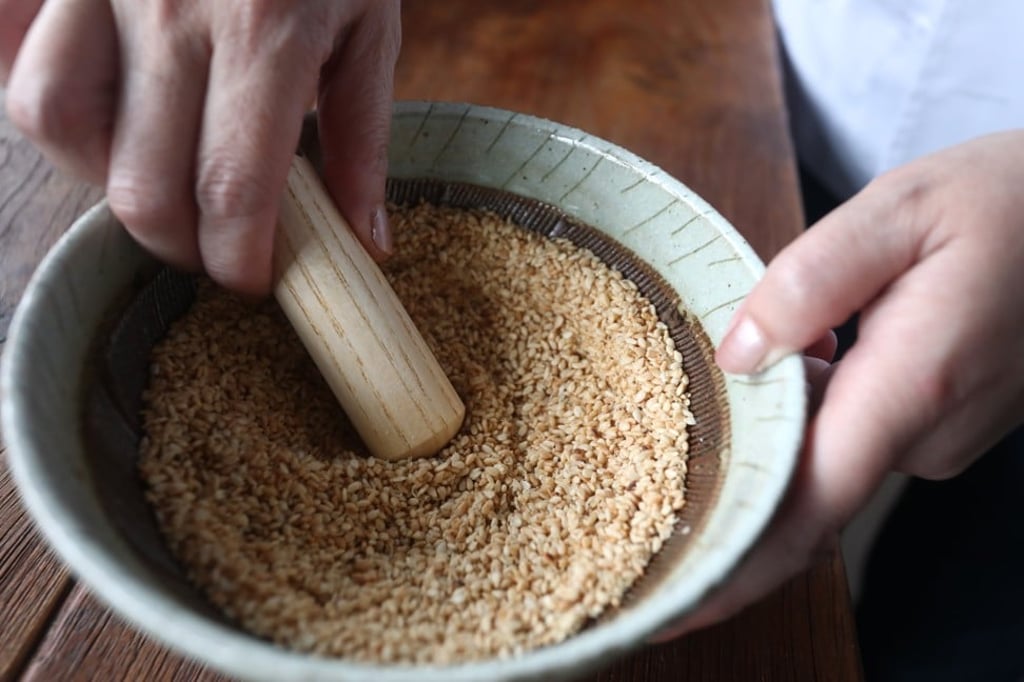How to make shabu-shabu salad – a cool Japanese dish for hot summer nights
- Topped with a delicious sesame sauce, shabu-shabu salad is easy to make, refreshing and filling
- The dressing tastes best when it is home made, although it does require a little effort

Shabu-shabu salad is a popular dish at izakaya and yakiniku restaurants. It couldn’t be easier – thinly sliced beef draped over mixed greens, with a delicious sauce.
Shabu-shabu salad
For this dish, most people buy shabu-shabu sauce, a creamy, sesame-based dressing. Home-made shabu-shabu sauce is so much better. Some recipes base it on sesame paste, but I prefer to start with white sesame seeds, which I toast in a small pan with a hinged mesh lid that locks into place. The screen prevents the seeds from falling out as you shake the pan over the flame; it also lets you smell the seeds as they toast, so you can remove the pan from the heat before they burn. If you don’t have one of these pans, use a medium to large unoiled skillet, and shake it gently over the flame while constantly stirring the sesame seeds with a wooden spoon.
To grind the toasted sesame seeds while they are hot, I use a suribachi (grinding bowl) and a wooden stick called a surikogi, essentially a Japanese mortar and pestle. The suribachi has a roughly textured, grooved interior, and the surikogi, used in a circular motion (rather than up and down, as with a pestle), grinds the seeds to a powdery paste. It’s slow-going but almost meditative to hear the sesame seeds pop as they are being ground and to smell the fragrance. For faster and more efficient processing, grind the seeds in a blender, such as a NutriBullet.

Buy thinly sliced beef labelled for shabu-shabu, sukiyaki or hotpot. Don’t buy the beef for yakiniku, which is sliced too thick.
If you want to make a heartier meal, add an onsen egg to each portion. You can buy them in some supermarkets, but they are easy enough to make, especially if you have an immersion circulator, which keeps the water at a steady 63 degrees Celsius. For those who don’t have one, I’ve given the technique that works on a stovetop. You do need an accurate thermometer, though, preferably a digital one.
About 300 grams (10 ½ ounces) mixed salad greens, or enough to serve two to four
4 large eggs, at room temperature (optional)
About 250 grams (9 ounces) shabu-shabu beef
4-8 sweet, ripe cherry tomatoes, preferably in different colours
Shichimi togarashi (seven spice powder), for sprinkling
For the shabu-shabu sauce:
50 grams (1/3 cup) untoasted white sesame seeds
30 grams (5 1/4 tsp) miso
30ml (2 tbsp) light soy sauce, or to taste
20ml (4 tsp) rice wine vinegar, or to taste
20 grams (4 tsp) Kewpie mayonnaise
A little chilli oil (optional)
